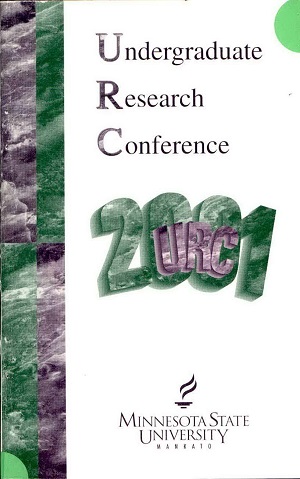Affects of Divorce on College Students' Relationships
Location
CSU
Student's Major
Psychology
Student's College
Social and Behavioral Sciences
Mentor's Name
Barry Ries
Mentor's Department
Psychology
Mentor's College
Social and Behavioral Sciences
Description
The purpose of this study is to examine the affects of parental divorce on college students' intimate relationships. It has been estimated that half of the marriages today will end in divorce (Ahlberg &. De Vita, 1992). How does this event affect the children involved? Two hundred students from Minnesota State University will respond to a questionnaire assessing their definition of intimacy, the frequency of intimate contact, and the level of trust involved in these relationships. It is anticipated that college students who experienced divorce in their immediate families will select behaviors higher on the sexual behavior hierarchy, will have had more intimate partners in the last three years, and will have become intimate at an earlier age than those individuals from an intact or remarried family atmosphere. Furthermore, it is anticipated that college students whose nuclear families experienced a divorce will have less trust in their relationships. Additionally, students who experienced divorce in their families before they were thirteen years of age will report less intimate contact and trust problems.
Affects of Divorce on College Students' Relationships
CSU
The purpose of this study is to examine the affects of parental divorce on college students' intimate relationships. It has been estimated that half of the marriages today will end in divorce (Ahlberg &. De Vita, 1992). How does this event affect the children involved? Two hundred students from Minnesota State University will respond to a questionnaire assessing their definition of intimacy, the frequency of intimate contact, and the level of trust involved in these relationships. It is anticipated that college students who experienced divorce in their immediate families will select behaviors higher on the sexual behavior hierarchy, will have had more intimate partners in the last three years, and will have become intimate at an earlier age than those individuals from an intact or remarried family atmosphere. Furthermore, it is anticipated that college students whose nuclear families experienced a divorce will have less trust in their relationships. Additionally, students who experienced divorce in their families before they were thirteen years of age will report less intimate contact and trust problems.




